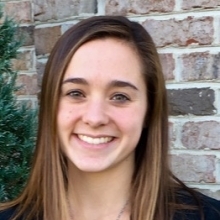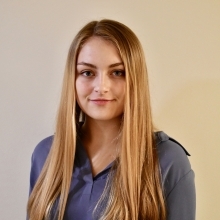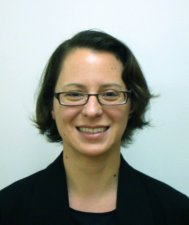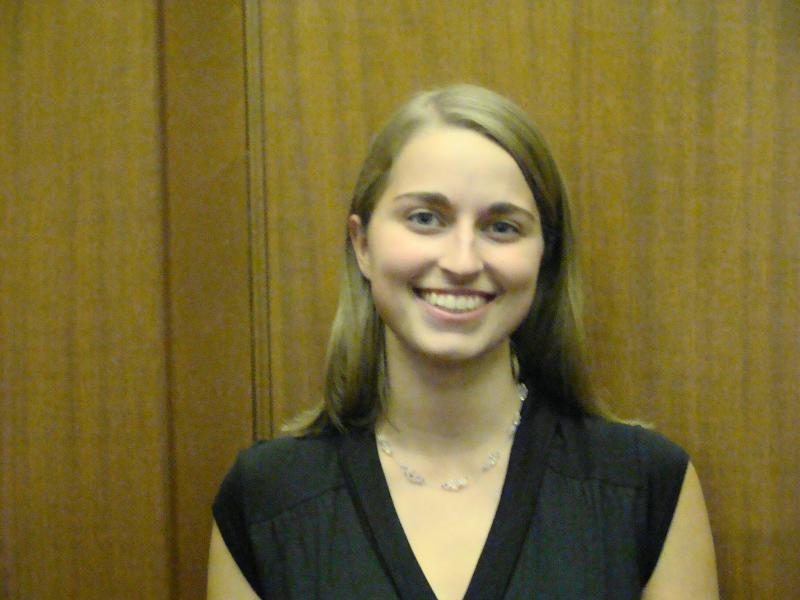Scholar Research and Accolades
Our scholars and their research are where the vision and work of ARCS Foundation Pittsburgh are realized. The members of the Pittsburgh Chapter are proud of our scholars and delighted to record their progress and success.
| ARCS Scholar Alum Spotlight: Staying in Touch with Michelle Karabin Harter, PhD |
 Dr. Michelle Karabin Harter, an ARCS Pittsburgh Scholar from 2020–2021 through 2022-2023, completed her PhD in the Department of Bioengineering, School of Engineering, at the University of Pittsburgh in 2024. We’re thrilled to share that Michelle is staying in Pittsburgh as a postdoctoral fellow in the ophthalmology department at StreetLab, part of the UPMC Mercy Vision Institute. She is conducting her postdoctoral research under the supervision of the world renowned Dr. José-Alain Sahel, distinguished professor and chair of ophthalmology, the Eye & Ear Foundation Endowed Chair at the University of Pittsburgh School of Medicine, and director of the UPMC Vision Institute. StreetLab’s mission is to study how visually impaired individuals perform dailylife tasks, with the goal of evaluating innovative solutions and assessing the therapeutic benefits of interventions. Dr. Michelle Karabin Harter, an ARCS Pittsburgh Scholar from 2020–2021 through 2022-2023, completed her PhD in the Department of Bioengineering, School of Engineering, at the University of Pittsburgh in 2024. We’re thrilled to share that Michelle is staying in Pittsburgh as a postdoctoral fellow in the ophthalmology department at StreetLab, part of the UPMC Mercy Vision Institute. She is conducting her postdoctoral research under the supervision of the world renowned Dr. José-Alain Sahel, distinguished professor and chair of ophthalmology, the Eye & Ear Foundation Endowed Chair at the University of Pittsburgh School of Medicine, and director of the UPMC Vision Institute. StreetLab’s mission is to study how visually impaired individuals perform dailylife tasks, with the goal of evaluating innovative solutions and assessing the therapeutic benefits of interventions.Michelle’s rapid progress through her doctorate should come as no surprise. She was a nationally ranked athlete in track and field—specifically pole vaulting, which sparked her deep interest in biomechanics and the science of balance. Her doctoral research focused on vestibular hypofunction—or vestibular loss—a condition in which individuals lose their ability to stand or walk steadily, increasing the risk of falling and injury. under Professor Mark Redfern in the Human Movement and Balance Laboratory, which focuses on the biomechanics of movement. Michelle created a computer simulation of walking with and without vestibular hypofunction, allowing her to recommend new rehabilitation and therapy strategies for affected individuals. Michelle credits ARCS as a pivotal influence in her career. She became an ARCS Scholar in 2020 while deciding between graduate schools and PhD programs. “Vestibular loss can result from ear infections, vertigo, migraines, or simply the aging process,” Michelle explains. “Our ears have hair cells that help us hear. Similarly, hair cells in our vestibular system degrade with age.” She notes that about 30% of Americans over the age of 40 experience some form of vestibular dysfunction. Recognized early on as a standout in bioengineering, Michelle received an NIH F31 award to support her research in computational modeling of human movement, specifically investigating how balance is maintained during movement. On her PhD research “When I learned I was a recipient, I took it as a sign to stay in Pennsylvania, attend the University of Pittsburgh, and follow my passion into biomechanics,” she shares. “I’m grateful for the opportunities—financial and otherwise—that ARCS continues to give me.” Her ARCS award helped lay the foundation for her current postdoctoral fellowship at StreetLab, where her balance research now extends to exploring how vision loss impacts balance and mobility. Her work aims to quantify daily life function in people with vision impairment and identify successful strategies that support independent mobility and quality of life. Reflecting on the impact ARCS has had on her journey, Michelle shared this message for our broader community: “Thank you for the work you do to reward young adults looking to pursue advanced degrees. It really does make a huge impact.” Dr. Michelle Karabin Harter’s story exemplifies the mission and long-term impact of ARCS Pittsburgh. Her research in biomechanics and balance is already making a difference—and promises even greater influence in the years to come. |
| ARCS Scholar Alum- Nicole Auvil |
 Congratulations to ARCS scholar Alum Nicole Auvil (Scholar from 2021-2024)! She recently placed third in Carnegie Mellon University’s Three Minute Thesis competition. Congratulations to ARCS scholar Alum Nicole Auvil (Scholar from 2021-2024)! She recently placed third in Carnegie Mellon University’s Three Minute Thesis competition.Read more about it at https://www.library.cmu.edu/about/news/2024-03/3mt-championship. |
| ARCS Scholar Alum Spotlight - Melissa Day |
|
|
ARCS Scholar Alum Spotlight - Bart Roland
 Bart was an ARCS scholar at Pitt from 2008 to 2011. He wrote to us, "I just wanted to give you and the other ARCS folks a heads up that some of my thesis work will be released soon in an upcoming issue of the Journal of Cell Science." Bart was an ARCS scholar at Pitt from 2008 to 2011. He wrote to us, "I just wanted to give you and the other ARCS folks a heads up that some of my thesis work will be released soon in an upcoming issue of the Journal of Cell Science." |
| ARCS Scholar Alum Spotlight - Elisabeth Gilmore |
 In 2004, Elisabeth Gilmore was the first and sole recipient of a Scholar Award from the ARCS Foundation - Pittsburgh Chapter. She now holds a dual PhD in Engineering and Public Policy and Chemical Engineering from Carnegie Mellon University. Her dissertation work evaluated the costs, air quality and human health effects of distributed electricity generation. In 2004, Elisabeth Gilmore was the first and sole recipient of a Scholar Award from the ARCS Foundation - Pittsburgh Chapter. She now holds a dual PhD in Engineering and Public Policy and Chemical Engineering from Carnegie Mellon University. Her dissertation work evaluated the costs, air quality and human health effects of distributed electricity generation.
Following a post-doctoral position at the Climate Decision Making Center at CMU, Elisabeth was selected as a Science and Technology Policy Fellow through the American Association for the Advancement of Science (AAAS) in Washington, DC, where she worked on the quantification of benefits and avoided risks of different climate scenarios in the Climate Change Division at the Environmental Protection Agency. To read more about Elisabeth's research, click here. |
Whitney Coyle - Hello all!
I am in State College at the moment and I wanted to let you know of some good news I received recently. I applied this year for some extra funds through NSF and through the French Embassy in Washington, DC to fund my travels back and forth from France to the United States and I was lucky enough to receive both of the fellowships I applied for: The NSF-GROW fellowship as well as the French Embassy of the United State's Chateaubriand Fellowship. I am so thankful for these opportunities and I know that ARCS has always had a large part in my success here at Penn State. Thank you again for all you have done.
Katherine Ricke, Carnegie Mellon University, Carnegie Institute of Technology, Engineering & Public Policy,
ARCS Pittsburgh Scholar 2007-2010
Scientific American, July 19 2010

 Melissa writes, “I can’t believe it’s been six whole years since I became an ARCS scholar!” Melissa was the recipient of the Dr. Arnold O. Beckman Award for the first three years of her doctoral degree at the world-renowned Chemical Engineering program at Carnegie Mellon University from 2009-2012. She has recently completed her PhD and will be an AAAS Fellow this coming September while working at the Environmental Protection Agency’s National Center for Environmental Research in the Air, Climate, and Energy Research Program. She says, “I’m very excited!”
Melissa writes, “I can’t believe it’s been six whole years since I became an ARCS scholar!” Melissa was the recipient of the Dr. Arnold O. Beckman Award for the first three years of her doctoral degree at the world-renowned Chemical Engineering program at Carnegie Mellon University from 2009-2012. She has recently completed her PhD and will be an AAAS Fellow this coming September while working at the Environmental Protection Agency’s National Center for Environmental Research in the Air, Climate, and Energy Research Program. She says, “I’m very excited!”